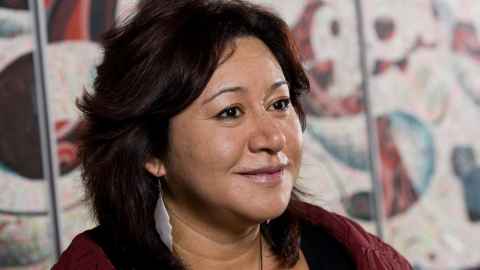Why Māori ways of doing business work
14 February 2023
Māori are finding success in business by honouring the past, tackling present challenges with kaha, and staying focused on the aspirations of future generations, writes Dr Rachel Wolfgramm.

Opinion: Māori are finding success in business by honouring the past, tackling present challenges with kaha, and staying focused on the aspirations of future generations.
Now estimated to be in the realm of $70 billion, the Māori economy is an example of astonishing resilience. Māori companies work hard to balance people, planet, and profit, and they do this by prioritising values such as kaitiakitanga, whānaungatanga and manaakitanga through proactive guardianship of land and resources, building lasting relationships, and caring for families and communities.
This is particularly important to iwi-run businesses, as they are directly accountable to the whole tribe. Iwi organisations are now some of the biggest in Aotearoa New Zealand, controlling and managing significant land and assets.
There are quite a number of iwi that are multibillion-dollar corporations with diversified portfolios in forestry, fishing, food, agriculture, tourism, real estate, aquaculture, transportation, construction and manufacturing.
In addition, Māori businesses are active in film, fashion, digital media, screen production, arts, gaming, education, performance, theatre, augmented and virtual reality and artificial intelligence. We are also seeing Māori businesses in the wellness industry, a global industry now estimated to be around $4 trillion and growing.
Despite the opportunities and upward trend in the Māori economy, Māori are still held back in business in several ways.
It’s not always easy navigating the challenges of today along with multiple stakeholders’ demands, yet, because Māori often do it well, interest is rising in the Māori economy and Indigenous ways of doing business, particularly in relation to sustainable and social enterprise.
For example, designing products and processes in a circular way can align with mātauranga Māori because the focus is on reducing environmental impact and reversing biodiversity loss.
Māori knowledge and kaupapa, based on centuries of observing and living with nature, give Māori as tangata whenua an edge. In addition, natural disasters and market “shocks” are not new to Māori, who have had to live with the results of both for centuries. Being dynamic, adaptive, and innovative is highly valued.
However, conservatism is quite a strong characteristic in some Māori entities, having learned to be cautionary and think about the long-term consequences of decisions.
Despite the opportunities and upward trend in the Māori economy, Māori are still held back in business in several ways. Consistent challenges include recruiting and retaining staff, brand narratives, governance, and access to capital.
However, some incredibly successful Māori companies do all of the above really well without compromising their values. They are exemplars for all businesses interested in taking an intergenerational approach and leaving a positive legacy for future generations.
This article reflects the opinion of the author and not necessarily the views of Waipapa Taumata Rau University of Auckland.
It was first published by the New Zealand Herald on 10 February, 2023.
Media adviser:
Sophie Boladeras
M: 022 4600 388
E: sophie.boladeras@auckland.ac.nz